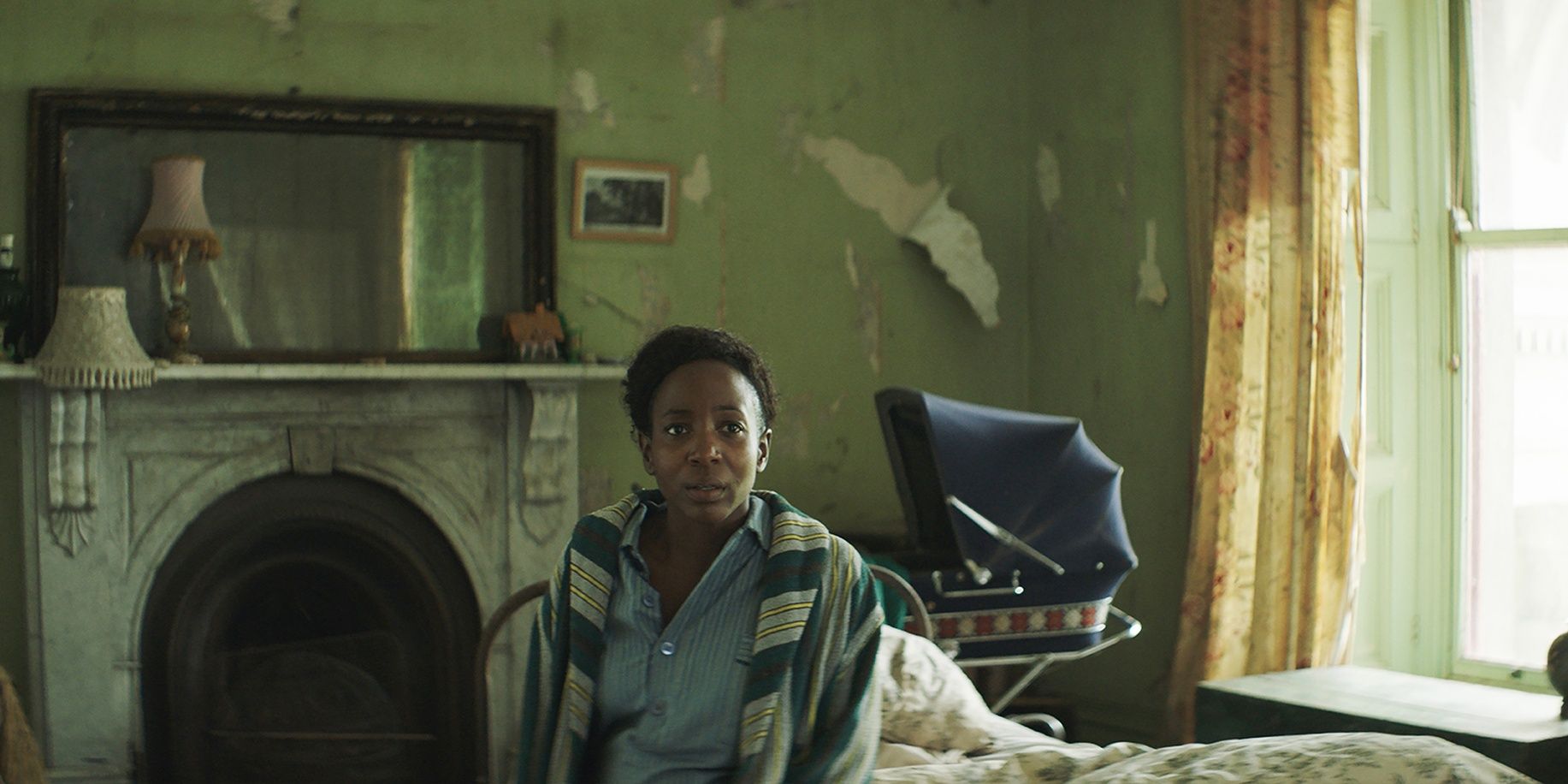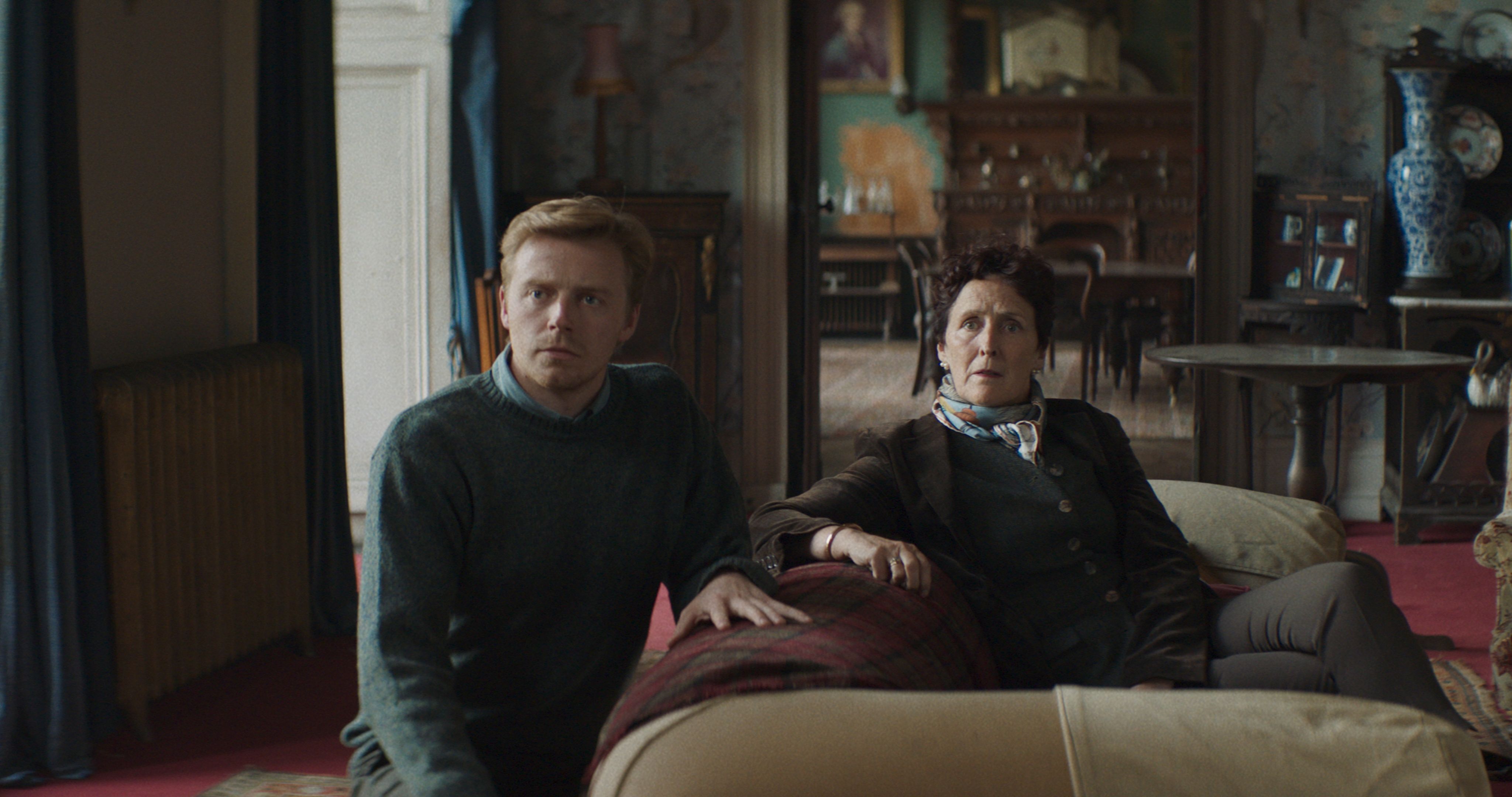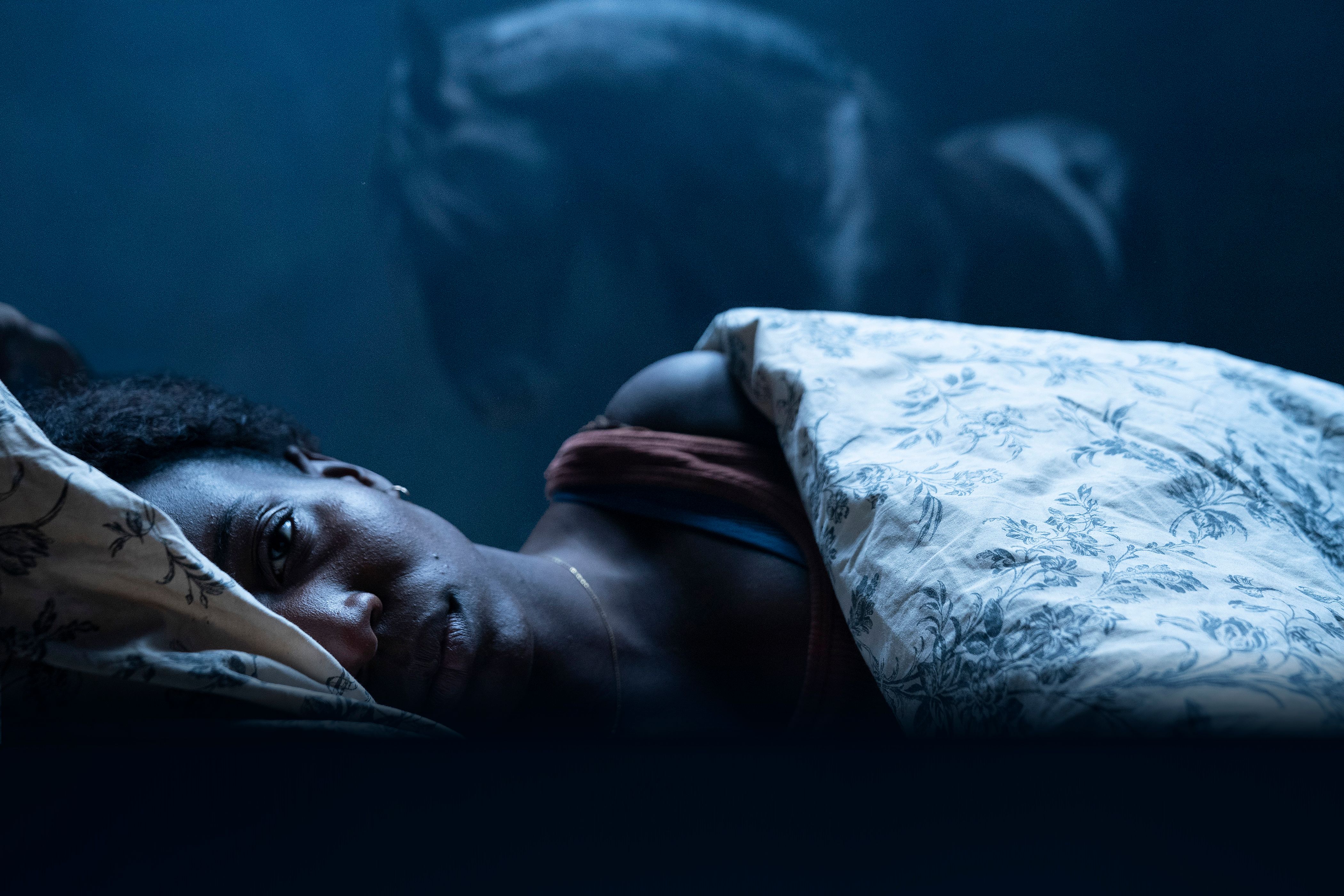Charlotte (Tamara Lawrance) is clearly viewed as an intruder in the sprawling, cavernous English country estate of her boyfriend’s family. At the beginning of Joe Marcantonio’s slow-burn psychological thriller Kindred, Ben (Edward Holcroft) brings Charlotte to lunch with his imposing mother Margaret (Fiona Shaw) and his stepbrother Thomas (Jack Lowden), who treat Charlotte like an interloper to be placated and disposed of as quickly as possible. But Charlotte isn’t intimidated, and she stands by Ben as he informs his mother that the couple plans to move to Australia. Margaret takes the news as a personal insult, demanding that Ben fulfill his obligations to the estate that’s been in the family for nine generations.
Charlotte’s resolve is tested over and over throughout Kindred, and while she starts out as a strong, independent force, she’s eventually no match for the weight of tradition and privilege. She soon discovers that she’s pregnant despite all the precautions she and Ben have taken, and while she’s less than enthused at the prospect of becoming a mother, Ben is overjoyed and barrels right past her objections. Then he dies unexpectedly in an accident, and Charlotte learns just how powerless she is without Ben shielding her from Margaret’s tyranny.
After Charlotte experiences some dizziness and fainting, Margaret and Thomas take her in, assuring her that they are only concerned for her health and the health of the baby. She initially appreciates their help, even if Margaret is overly critical and Thomas is overly solicitous. But Charlotte quickly finds out that no matter what they claim, Margaret and Thomas never intend for her to leave. Her conveniently broken cell phone can’t be fixed, and Margaret tells her that the home she shared with Ben has been foreclosed on following his death. The remote estate is far from any other homes or businesses, and there’s a giant padlock on the gate, anyway.
Marcantonio and co-writer Jason McColgan build the tension slowly and methodically, but it’s obvious from their first appearance that Margaret and Thomas have sinister intentions. As a result, it’s a bit frustrating to watch Charlotte keep giving them the benefit of the doubt, even early on when she could theoretically escape. The longer she stays, the weaker she gets, with frequent fainting spells that are likely the result of drugs in her food and drink, rather than just the side effects of pregnancy. Margaret and Thomas are alternately condescending and hostile, depending on how willing Charlotte is to follow their orders.
They regard Charlotte as nothing more than a vessel for producing another heir to the estate now that Ben is gone (Thomas, who isn’t a blood relative, doesn’t qualify). Although Charlotte’s race is never explicitly mentioned, it’s one more element that marks her as unworthy of the family, as a tool to be used and discarded. This Black, working-class woman with a family history of mental illness isn’t part of their world and she never will be. Everyone Charlotte turns to for help, from the creepy, paternalistic family doctor (Anton Lesser), to the seemingly more sympathetic nurses and hospital workers, to her own best friend, defers to the family, in an illustration of deeply ingrained privilege.
The movie effectively depicts the futility of Charlotte’s situation, but that also makes it repetitive and somewhat monotonous, as she is initially too accommodating and then continually unsuccessful in any efforts to escape or rebel. Marcantonio inserts periodic visions of ominous crows and Charlotte’s constant disorientation gives the movie a dreamlike feel at times, but there are no supernatural threats here. Although some elements of the plot draw heavily from the 1968 horror classic Rosemary’s Baby, Margaret and Thomas aren’t Satan worshipers; they’re just really rich and entitled.
As she’s proved on Killing Eve, Shaw is an expert at playing powerful, demanding women, and Margaret is a fantastic villain, plainly evil but also outwardly rational much of the time, causing Charlotte to constantly doubt her own suspicions. Margaret delivers a monologue late in the movie -- shot in a single, unbroken take -- explaining her own maternal journey, which reveals just how deeply disturbed she really is, even though she herself sees it as an endearing story of motherly love.
Lowden plays well against Shaw as a different kind of villain, functioning almost as Margaret’s henchman in his fawning obsequiousness. And Lawrance holds the movie together, even as Charlotte keeps making infuriating decisions, right up to the bleak ending.
The house is a villain of its own as well, decorated with disturbing taxidermy and hauntingly empty without any servants or other occupants. It’s as if Downton Abbey were left only with Maggie Smith’s Dowager Countess, driven half-mad with her need to hold onto her family’s former glory. The noblesse oblige of the upper class can easily turn menacing and that’s what Kindred most vividly captures, even if it lacks the nuance or range to go much deeper than that.
Starring Tamara Lawrance, Fiona Shaw, Jack Lowden, Chloe Pirrie, Edward Holcroft and Anton Lesser, Kindred opens Friday, Nov. 6 in select theaters and on VOD.



